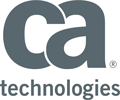Turning request-response on its head
These days software is increasingly built as a collection of smaller, loosely coupled services, and with the gains realized in terms of agility and resilience also come the numerous challenges of distributed systems. For example, to account for potential failures in servers, availability zones, and regions, unexpectedly long response latencies, and network instability, we have put patterns such as retries, circuit breakers, service discovery, and caching in place with a fair bit of success. But these solutions assume and are built around a request-response invocation style.
Cornelia Davis explains how to use an event-driven approach to address the fallacies of distributed computing in a very different way, offering significant benefits over request-response, and details event-oriented solutions to problems commonly addressed with well-known patterns.

Cornelia Davis
Pivotal
Cornelia Davis is Sr. Director of Technology at Pivotal, where she works on the technology strategy for both Pivotal and for Pivotal customers. Through engagement across Pivotal’s broad customer base, Cornelia develops core cloud platform strategies that drive significant change in enterprise organizations, and influence the Pivotal Cloud Foundry evolution. Currently she is working on ways to bring the various cloud-computing models of Infrastructure as a Service, Application as a Service, Container as a Service and Function as a Service together into a comprehensive offering that allows IT organizations to function at the highest levels. She is the author of the book “Cloud Native: Designing Change-tolerant Software” by Manning Publications (https://www.manning.com/books/cloud-native).
An industry veteran with almost three decades of experience in image processing, scientific visualization, distributed systems and web application architectures, and cloud-native platforms, Cornelia holds the B.S. and M.S. in Computer Science from California State University, Northridge and further studied theory of computing and programming languages at Indiana University.
When not doing those things you can find her on the yoga mat or in the kitchen.
Sponsorship Opportunities
For exhibition and sponsorship opportunities, email SAconf@oreilly.com
Partner Opportunities
For information on trade opportunities with O'Reilly conferences, email partners@oreilly.com
Contact Us
View a complete list of O'Reilly Software Architecture contacts
©2018, O'Reilly Media, Inc. • (800) 889-8969 or (707) 827-7019 • Monday-Friday 7:30am-5pm PT • All trademarks and registered trademarks appearing on oreilly.com are the property of their respective owners. • confreg@oreilly.com






